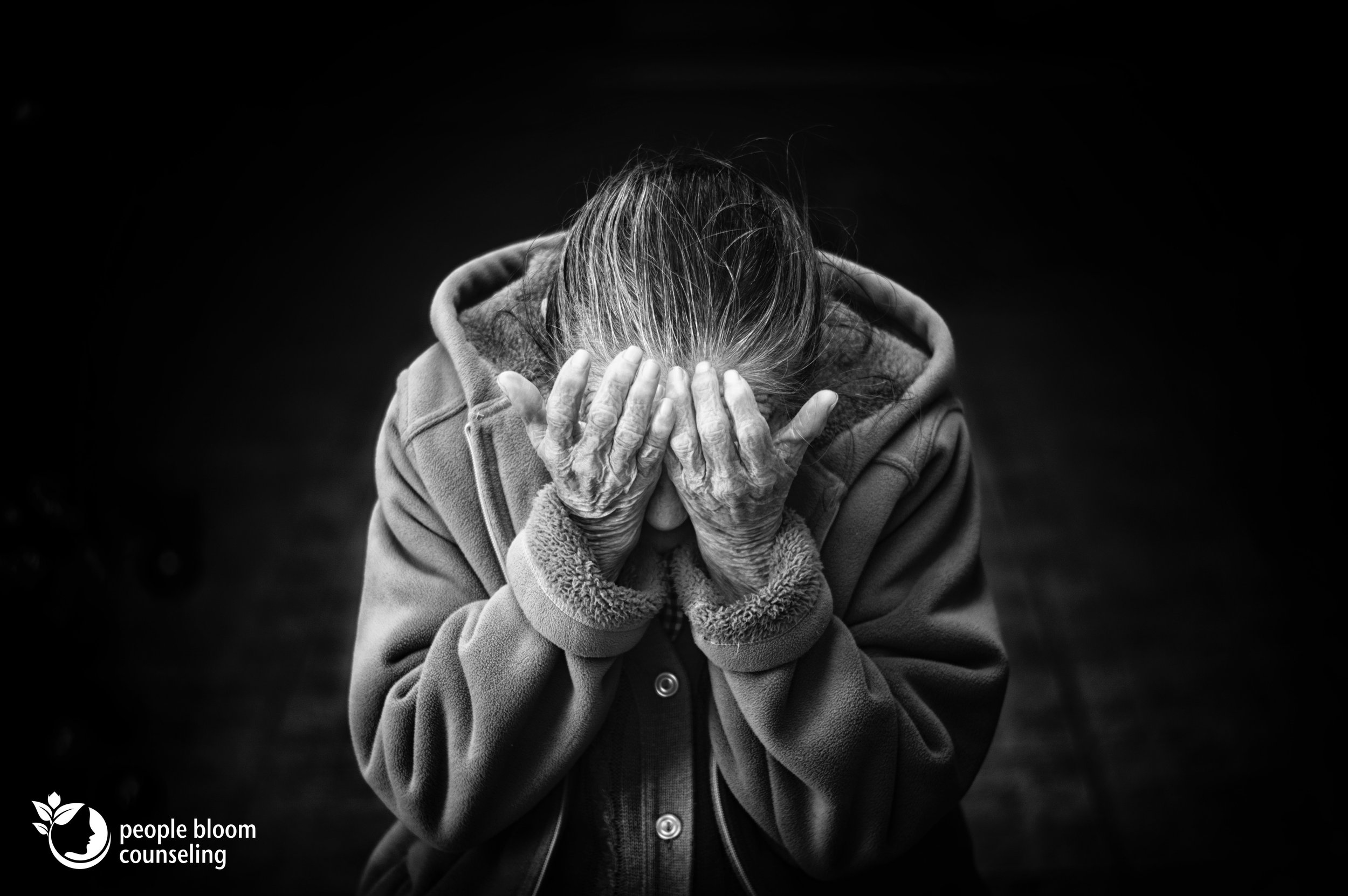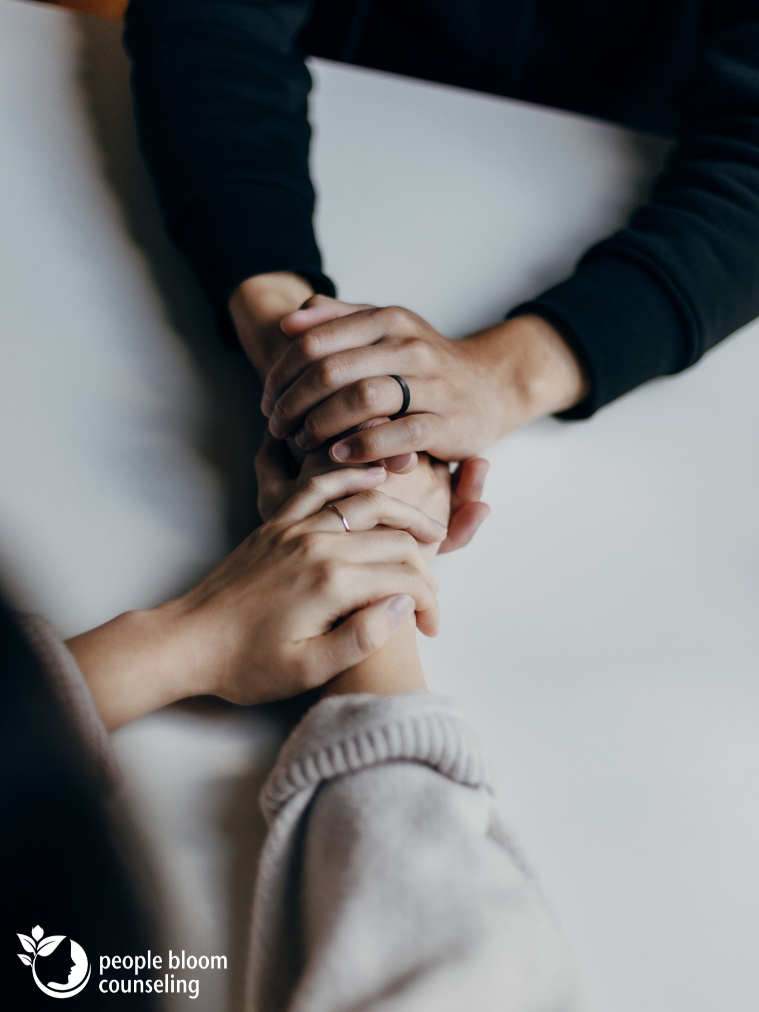Photo by Danie Franco on Unsplash
When Grief is Messy
I work with cancer patients and go through the ups and downs of diagnosis and treatment with them. Having recently lost my father-in-law and previous to that, lost family members to unexpected causes, I understand that grief can be messy.
Earlier this year, for reasons prior to my own recent loss, my relationship with grief started to shift. I miss people I’ve lost but I’m starting to accept that grief and loss are a natural part of life. While it matters how the person passed away and whether I had a chance to say goodbye, their physical absence is permanent and nothing I do can change that. I still feel saddened by their loss, but the grief feels calmer, more settled. Through my lived experiences and the witnessing of other people’s grief journey, I’ve come to three lessons learned.
There’s no one way to grieve
When I listen to jazz, I’m reminded of dad. While washing his clothes, I teared up. We bought a used RV and he had previously questioned whether that was a good idea. I’d speak quietly to him, saying, “Dad, we’re going on an adventure”. I talk to other people about missing him. I want to be with others but I also want to be alone.
My husband uses dad’s old keychain and will wear one of his Hawaiian shirts to our friend’s wedding tomorrow. He says he feels his feels but he doesn’t bring up dad. He has a quiet resonance to my sharing. There was a time when I wasn’t sure if he was distracting himself or avoiding his grief. I couldn’t tell, but I also need to trust his words for it.
Grief doesn’t look any one way and it doesn’t need to. How we choose to honor the memory of those we’ve lost is very specific to us as individuals, so let’s not insist that we must cry at funerals or else it means that the person didn’t matter to us. Or, it’s a celebration of life, so no tears allowed; only happy memories. Or, how can you book a trip to Disneyland when it overlaps the deceased’s birthday, favorite holiday, or death anniversary? That’s so heartless!
How we grieve is how we grieve. How others grieve is how they grieve. Let’s not judge.
When one grief leads to another
The thing is, grief is messy; it’s not linear. I even intentionally mixed up the stages of grief in a previous post about cancer. Not only is grief all over the place, it also connects our hearts to other losses in ways we least expect it.
While sad about dad, I was reminded of his sister whom we lost to cancer a few years back. Then I started missing her. As if it’s contagious, my mind shifted to an uncle on my MIL’s side of the family and we lost him almost eight years ago! My heart was whelmed over. WTF, I thought I’ve grieved the loss of these people! And I have, but that doesn’t prevent my heart and mind from making these connections. I was missing them all over again, and for a moment dipped into the pain of those losses.
It’s okay to cry again, to be surprised by your own emotions, and to replay the sound of that person’s voice in your head. Deaths are significant, no matter how long they’ve been. So take a moment and let your emotions run. The word “emotions” contains the word “motions.”
Your emotions need to move. Let them move from the inside out.
Grief happens when it happens and lasts as long as it lasts
As you can imagine, death doesn’t wait for you to be in between jobs, for your kid to be off to college, for there to be at least a five-year gap from when you last experienced a loss. Neither does grief. Grief happens when it happens. I was writing this blog and started to tear up. You can be reading a receipt and be reminded of your son’s hockey jersey number. We would need to stop watching most shows if we don’t want to be triggered by death and dying. It doesn’t take much for grief to surface and when it does, let it be.
Grief also lasts as long as it lasts. When asked how long is my sister, my wife, my dad going to grieve, grief expert David Kessler answered, “How long is the person going to be dead? If the person is going to be dead, they’ll be grieving for a long time.” The first two years are merely the early stage of grief. Mature grief is when we live out the rest of our lives without that person.
So, if those five days of bereavement leave didn’t do anything for you, that’s because it’s better than nothing and yet completely insufficient. Your friend got over their partner in a year and remarried and you’re still a puddle on the floor? Their grief is their business and your grief is yours.
Let your own grief journey take you to your healing.
Bonus: Remember how you remember
If there’s no one way to grieve, there’s no one way to remember. However you choose to remember your loved one is right. And when you want to switch up your ritual, it’ll be right then too. Going fishing is a great way to grieve, as is riding on Space Mountain or eating curry fish. You don’t have to wear sackcloth and ashes to be considered legitimately grieving, though no offense if that is you. Only you would know if you’re grieving, so do you.
An invitation to grieve
My hope for you is that you may stay present with your grief and take some time with it. If you need help through the grieving process, you know where to find us.
Ada Pang is the proud owner of People Bloom Counseling, a Redmond psychotherapy practice. She helps unhappy couples find safety and connection in their relationship. She also helps cancer thrivers and their caregivers integrate cancer into their life stories. She remembers her friend Molly when she sees creepy art and eats Heirloom oranges. She celebrates her aunt when she eats dim sum. May you find your ways too.



















